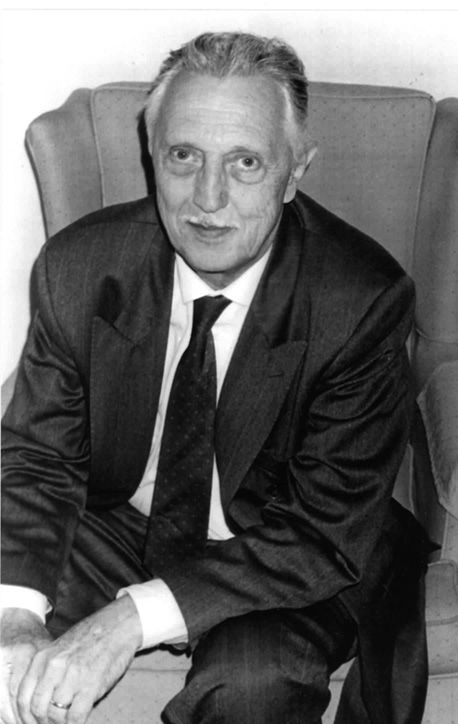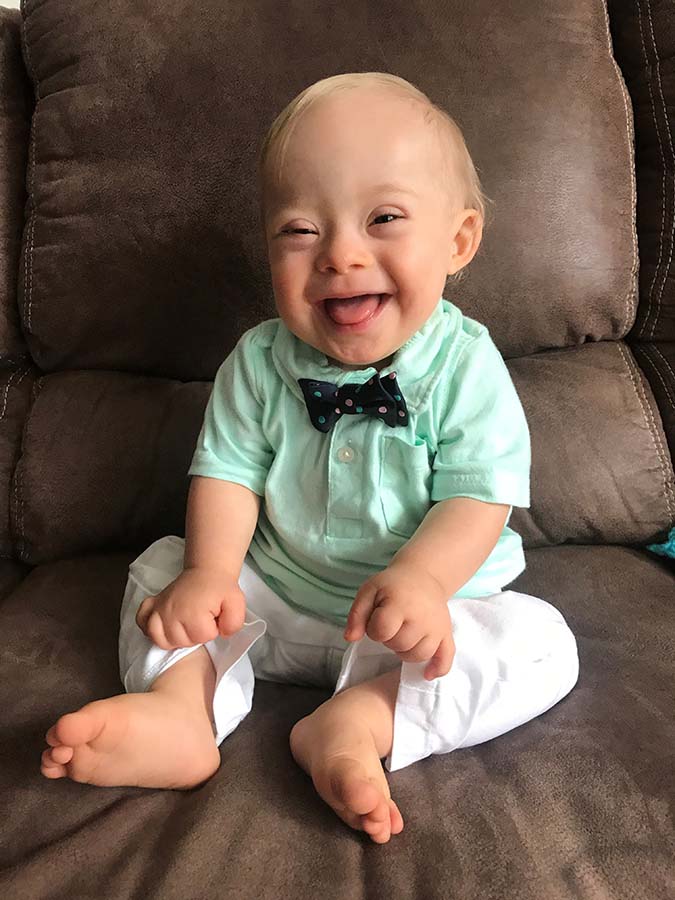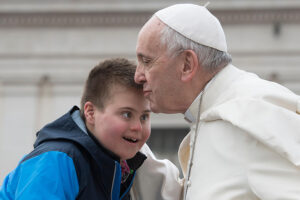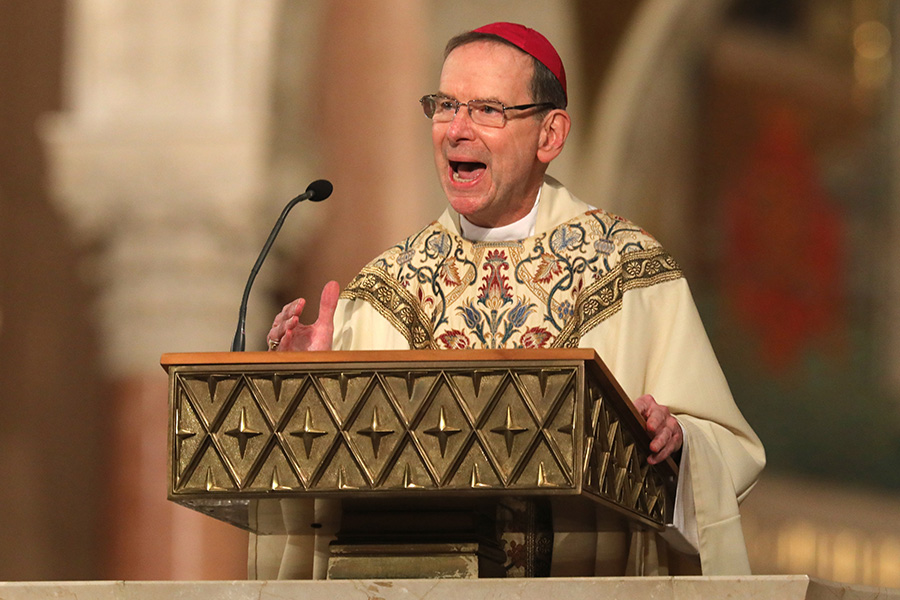RESTON, Va. (OSV News) — The theme of World Down Syndrome Day 2023 — observed officially by the United Nations since 2012 on March 21 — emphasized a perspective perhaps subtle, and yet profound: “With Us, Not For Us.”

This request of accompaniment versus dependence — don’t do things for us because we have Down syndrome; do them with us — is a declaration that Jérôme Lejeune would surely enthusiastically endorse. The French Catholic pediatrician and geneticist who co-discovered the link between a chromosome irregularity and Down syndrome is now on the path to sainthood, and the Jerome Lejeune Foundation USA daily advances the rights and wellbeing of those with Down syndrome and their families.
“In the United States, our foundation seeks to provide an abundant life for persons with Down Syndrome and other genetic-based intellectual disabilities through a world-class model of care from the moment of prenatal diagnosis to the end of a happy life,” Daniel Schreck, president and chairman of Jerome Lejeune Foundation USA, said.
In 1929, a child with Down syndrome was expected to live to age 9. Intellectual disability, growth delays, and heart and eyesight issues were faced then, and still are now. However, the modern life expectancy of a person with Down Syndrome is 60 years. This greatly extended lifespan reflects the work of Lejeune during his era, and those who continued it after his 1994 death.
The Jerome Lejeune Foundation USA is “building a suite of practical tools to assist patients, parents, and professionals,” said Schreck. “Along with our related foundations in Europe and South America — and in particular the 25 years of clinical research and care conducted in France — the legacy of Dr. Jérôme Lejeune is alive and effective in fulfilling our collective mission of care, research, and advocacy.”
Advocacy is critically important, given a chilling set of prenatal statistics. While estimates vary, elective abortions of children whose Down syndrome is detected in prenatal tests are as high as 67 percent in the U.S. In Denmark, the figure is 98 percent, while other European nations report rates exceeding 90 percent. Virtually no children are born with Down syndrome in Iceland.
As the Jerome Lejeune Foundation USA website notes, “As soon as the pro-abortion laws were drafted in Western countries, Lejeune began advocating for the protection of the unborn with Down syndrome. He gave hundreds of conferences and interviews across the globe in defense of life.”
After a 1969 medical symposium in New York City, Lejeune lamented his colleagues’ utilitarianism, reflecting that their study of cytogenetics — the area of genetics concerned with studying normal chromosomes and chromosome irregularities — led them to almost universally recommend “therapeutic abortions.”
“Either we cure them,” Lejeune predicted, referring to children with Down syndrome, “or it will be the massacre of the innocents.” Lejeune then dedicated his foundation in France in 1989, as well as ongoing research, to improve lives with Down syndrome.

Chromosomes are DNA molecules holding part or all of the genetic material of an organism. Down syndrome, known as Trisomy 21, occurs when there is an extra copy of chromosome 21, one of 23 pairs of chromosomes in humans.
Recent progress includes identification of approximately 255 genes on chromosome 21, enabling the search for targeted treatments that would offset the effects of overexpression of these genes.
Thanks to animal models in mice that carry copies of chromosome 21, as of 2019, researchers can improve learning and memory capacities — a fundamental step toward therapeutic human research. Most medical complications associated with Down syndrome can now be screened for and treated, a major advance derived from consistent medical follow-up with patients.
The Catholic Church’s embrace of those with Down syndrome is remarkably visible in the Little Sisters, Disciples of the Lamb — a French women’s religious community that invites women with Down syndrome to enter religious life. Pope Francis in 2017 called for catechists to specialize in forming those with intellectual and other developmental delays and “accompany these persons so they may grow in faith and give their genuine and original contribution to the life of the Church.”
With respect to the sacraments, the U.S. Conference of Catholic Bishops has emphasized, “It is essential that all forms of the liturgy be completely accessible to persons with disabilities” (Guidelines for the Celebration of the Sacraments with Persons with Disabilities).
It’s the sort of dignity of inclusion Lejeune promoted. A member of the Pontifical Academy of Sciences, Lejeune was appointed St. John Paul II as the Pontifical Academy for Life’s first president in 1994.
In January 2021, Lejeune’s “heroic virtues” were recognized officially by Pope Francis who declared him “Venerable.” For his beatification, the Vatican must next confirm a miracle attributed to his intercession. A second confirmed miracle will see Lejeune declared a saint.
Read More Respect Life
Copyright © 2023 OSV News







